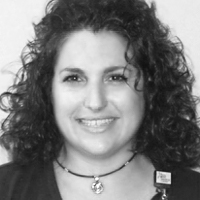AOTA
The website for AOTA has a lot of good resources and guidelines about driver safety. They have resources for professionals and some specific language that you can use with adult children or family members. They also have an Older Drivers' Awareness month, educating people on the safety of driving. One of the documents talks about "confidence replacing worry" when you get a safe driving assessment.
When should someone have a driving assessment?
A driving assessment should occur when someone has not driven before or has not driven since a disability. We see a lot of children who may have spina bifida or some developmental delay who have reached 18 or 19 years of age and are now looking at whether or not their impairments, physical and cognitive, are minimal enough to allow safe and competent driving. If someone has never driven before, this would be a good introduction, or if they have not driven since they have had a disability, for instance a spinal cord injury or stroke. We did a seminar last summer on children with autism and we did classroom training with them. I think it was a wonderful opportunity to get them ready to see if they could get a permit and be a candidate for driving. I think OTs have a wonderful way of teaching this population.
Another group are the people who start to feel uneasy about their physical ability, about maneuvering, seeing, or reacting. They can have impairments related to the aging process or a change in physical ability.
The third population is those that have had any type of physical disability. I just spoke to someone this morning who called and told me that he had a stroke, but it was very mild. He has no problems and is fine. He wanted to know why we had to have him come in and do the assessment. I explained to him that it we are not the ones requiring him to have the assessment. We are responding to a referral from the physician, and the physician is asking him to have the assessment. That is one piece that I always try to make sure that the clinicians cover. We can facilitate it, but at the end of the day, we are not making that referral. Sometimes I see therapists who come across as they are making the referral, and I think we need to be very careful. In this specific situation, this gentleman was looking to place blame. I explained to him that if he were to get into an accident and had no documentation on his safety and ability to drive, he could be putting himself in a vulnerable position. Whether his physical ability changed is going to be up to him and his physician to determine. This is probably the largest group that I see.
